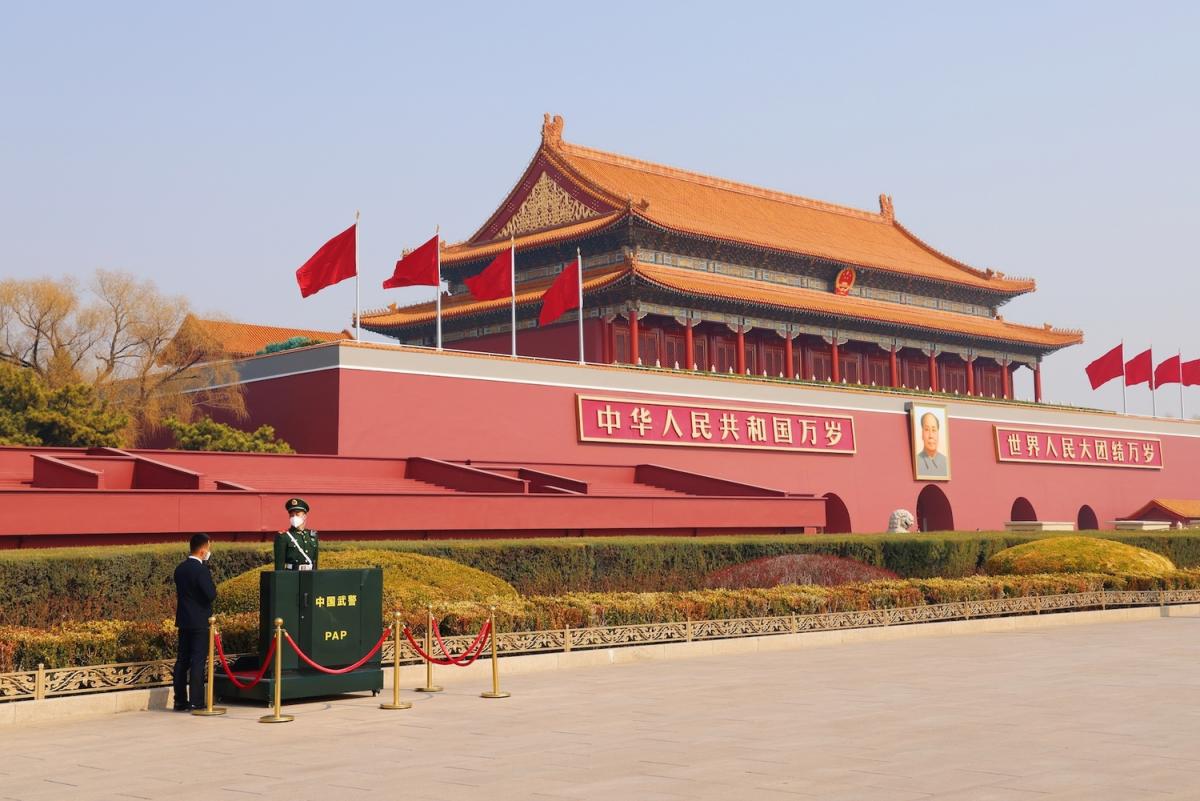The Russian Volunteer Corps is fighting Vladimir Putin’s Russia, like Thursday’s attack on Russian soil. The Kremlin says for its part that kyiv is behind these “terrorist attacks”. Who is the “RDK” really fighting for?
The war would have gone beyond Ukrainian borders. Thursday, March 2, 2023, Vladimir Putin denounced a “terrorist” attack perpetrated in the oblast of Bryansk, in the south-west of Russia, near the border with Belarus and Ukraine. An attack claimed by the Russian Volunteer Corps (RDK), described as “saboteurs” by the Kremlin.
A far-right Russian armed group
The Russian Volunteer Corps is an armed organization said to have been formed in August 2022 by Russian Denis Kapustin, also called Nikitin. It would be almost exclusively made up of Russians who emigrated to Ukraine, recognizing themselves in an extreme right-wing ideology. This political connection differentiates it from other organizations opposing the Kremlin, such as the “Freedom for Russia” legion, which is made up of defectors from the Russian armed forces and volunteers.
Another video from a different group of alleged “Russian Volunteer Corps” fighters standing next to a Russian mailbox, allegedly in Bryansk Oblast. Gunfire can be heard in the background. pic.twitter.com/FQpw8h4fbw
— Dmitri (@wartranslated) March 2, 2023
According to one of its commanders, the fighters can “claim to be linked to the conservative right on the political spectrum”. The symbols of the RDK even take up an imaginary linked to Nazi ideology. Indeed, the fighters appropriate the symbols of the Russian Liberation Army, also known as the Vlassov Army, which had collaborated with Nazi Germany during the Second World War. Among these symbols, we note for example the “spike” of the far-right Russian marshal Viktor Larionov which is used as a logo.
A well-known neo-Nazi leader
The founder and leader of this group is Denis Kapustin, known as a neo-Nazi figure in Russia. He notably made a name for himself within far-right hooligan movements – in Germany and Russia – and by organizing MMA fights. In a long article on Russian hooliganism from 2018, The Guardian reported in particular that Denis Kapustin had a picture of Joseph Goebbels, one of the main leaders of the 3rd Reich, framed in his room.
Denis Kapustin reportedly arrived in Ukraine in 2017, to join other far-right Russian friends living in Ukraine. Among them, we can for example mention Sergei Korotkykh. The latter was very close to the Azov regiment – Ukrainian battalion created in 2014, as indicated by the independent Ukrainian media Zaborona – the majority of whose members adhere to an ideology close to neo-Nazism. Ideas close to those of Denis Kapustin and members of the Russian Volunteer Corps.
Read also :
War in Ukraine: what is the Azov regiment, this ultra-nationalist battalion that has become a symbol of the martyrdom of Mariupol?
No established link with Ukraine
If the RDK is fighting the regime in place in Russia, no link has been proven between the organization and the Ukrainian army. It is therefore impossible to say precisely that the Russian Volunteer Corps is acting on orders from Ukraine as the Kremlin claims. kyiv has also denied any intervention in Russian territory. In the words of Andriy Yusov, a representative of the Ukrainian government, the RDK is made up of “people who, arms in hand, fight against the Putin regime and those who support it”. But of course not under the command of Ukraine.
A doubt remains, however, because of supposed links between Denis Kapustin, the leader of the Russian Volunteer Corps, and the Ukrainian army, as reported The world and the AFP. This vagueness makes it possible to feed Vladimir Putin’s propaganda which justifies the invasion of Ukraine by the need to fight the “Nazis who run the country”.


